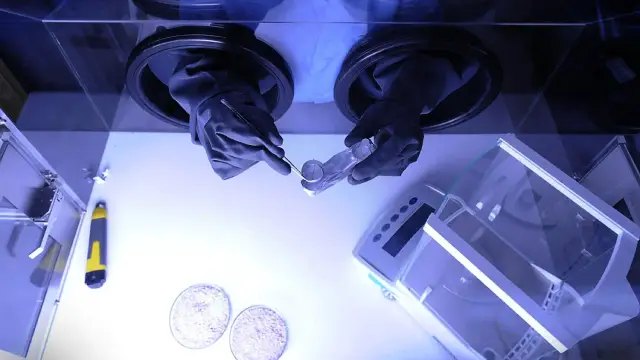Biochemistry Laboratory
Last Update Date: 9/11/2025 3:03:54 PM
A laboratory is a facility that enables scientific or technological research, experiments and measurements to be carried out under controlled conditions.
What is a Laboratory?
Scientists and researchers discover new information, improve existing knowledge and make technological progress by conducting various experiments and analyses in laboratories. Laboratories can be specialised according to different branches of science.
For example, chemistry laboratories, biology laboratories, physics laboratories and medical laboratories. Each laboratory has special equipment and tools used in the relevant discipline. People working in laboratories are called laborants.
Laboratories play a very important role for the progress of humanity and are the source of many new discoveries and inventions.
Which Diseases Does The Laboratory Look At?
The laboratory does not look at a disease alone. The laboratory performs various tests and analyses to help doctors diagnose and monitor diseases. The data obtained as a result of these tests and analyses are used by doctors to diagnose the disease, follow the course of the disease and determine the appropriate treatment.
The tests and analyses performed in laboratories are very diverse. Some of the most common tests are as follows:
Blood tests: Blood is an important source for the diagnosis of many diseases in our body. Blood tests can measure many different parameters such as blood cells, electrolytes, hormones, enzymes and proteins.
Urine tests Urine tests are also used to diagnose many diseases. Urine tests can measure many different parameters such as urine colour, odour, pH, glucose, protein and urine sediment.
Tissue biopsies A tissue biopsy is when a small piece of an organ or tissue is taken and examined under a microscope. Biopsies are an important tool for diagnosing many diseases, such as cancer.
Microbiological tests: Microbiological tests are used to diagnose microorganisms such as bacteria, viruses, fungi and parasites.
Genetic tests: Genetic tests are used to diagnose genetic diseases by analysing a person's DNA or to determine a person's risk of developing a particular disease.
Some examples of diseases that laboratories look at:
Cancer: Many laboratory tests such as blood tests, biopsies and genetic tests are used to diagnose cancer.
Infections: Many laboratory tests such as blood tests, urine tests and microbiological tests are used to diagnose infections.
Heart diseases: Blood tests, ECG and other tests are used to diagnose heart disease.
Diabetes: Blood tests are used to diagnose diabetes.
Kidney diseases: Blood tests, urine tests and other tests are used to diagnose kidney diseases.
These are just a few examples. Laboratories are used to diagnose and monitor a wide range of diseases.



















